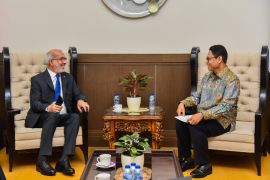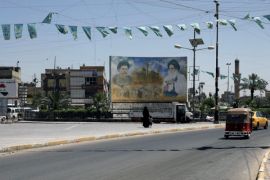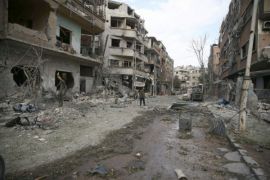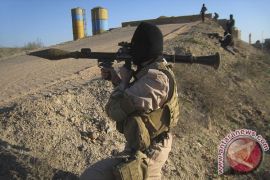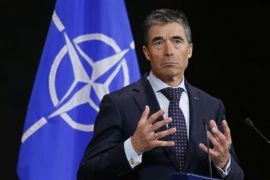One bomber detonated his explosives outside the compound in Baghdadi, 190 km (120 miles) west of the capital, while other attackers disguised in army uniforms stormed in and took several people hostage, holding them in a police station.
In a separate attack on a different police station in the town, security personnel thwarted the assault when they killed two bombers and detained one other.
It was not immediately clear whether the casualties came from the initial attack on the government compound or the fighting that followed as security personnel retook the site.
Mohammed Fatehi, the Anbar governor`s spokesman, said eight people had been killed, while the Anbar governor said seven people had died. But police sources said at least 13 people were killed in the attacks not including the bombers. It was thought a police chief may be among the victims.
Casualty figures often vary after attacks in Iraq.
The attacks underscored Iraq`s still delicate security situation as the last U.S. troops prepare to withdraw at the end of 2011 more than eight years after the invasion that toppled Sunni dictator Saddam Hussein.
Violence in Iraq has fallen sharply since the height of sectarian strife in 2006-2007, but Sunni Islamist insurgents and radical Shi`ite militias still carry out daily attacks.
Al-Qaeda`s Iraqi affiliates, though weakened by the loss of top commanders, often target local government buildings in an attempt to destabilize the government.
Anbar, a vast mostly Sunni Muslim province in western Iraq, is the former stronghold of Iraq`s al-Qaeda.
Suicide bombers killed four people last month in an attack on another government complex in Ramadi, also in Anbar.
About 44,000 U.S. troops remain in Iraq after ending combat oerations last year. They are mostly advising and assisting Iraqi forces as they pack up before a year-end deadline for them to leave the country.
Iraqi and U.S. officials say local armed forces are able to contain the stubborn insurgency. But the government is debating whether to ask some American soldiers to stay on as trainers to help the Iraqi military fill gaps in its capabilities. (*)
Editor: Kunto Wibisono
Copyright © ANTARA 2011
